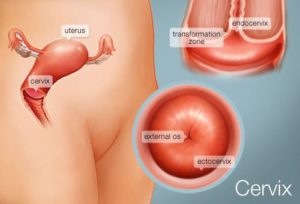
Diagnosed with Cancer? Your two greatest challenges are understanding cancer and understanding possible side effects from chemo and radiation. Knowledge is Power!
Learn about conventional, complementary, and integrative therapies.
Dealing with treatment side effects? Learn about evidence-based therapies to alleviate your symptoms.
Click the orange button to the right to learn more.
- You are here:
- Home »
- Blog »
- Healthy Living Products »
- Cervical Cancer- Radiotherapy and Chemo-
Cervical Cancer- Radiotherapy and Chemo-

Integrative therapies with cisplatin- supplements to both enhance the efficacy of cisplatin while reducing toxicity in cervical cancer (CC)
Hi David- My fiancée is 38 years old has recently been diagnosed with Cervical Cancer Stage 2b (Minimum Deviation Adeno) Rare type.
She is waiting a call to be booked in for Radiotherapy with low dose Chemo for 5 weeks ..then INTERNAL Radiotherapy and Chemo for two weeks.
Is there any specialist out there who ANYBODY can recommend to look at a different possibly more direct approach of treating this ASAP. …Please … Best Regards-Peter
Hi Peter- Several things to consider. The therapy you mention, combining radiation with low-dose cisplatin, is the conventional therapy that has shown the greatest benefit for your fiancee’s type and stage of cancer.
Further, I will link studies below about supplementation that works integratively with cisplatin.
If you are asking about a more “direct approach” are you asking about surgical options? Something else? I can provide research if you want me to- I’m not sure what you are asking.
David Emerson
- Cancer Survivor
- Cancer Coach
- Director PeopleBeatingCancer
Recommended Reading:
- HPV Variable Risk Factor in Cervical Cancer
- Anti-angiogenesis Extends Cervical Cancer Survival
- Treat HPV Naturally Before Cancer Strikes
Reversal of resistance towards cisplatin by curcumin in cervical cancer cells.
“Epigenetic regulators like histone deacetylases (1 and 2), and viral onco-proteins (E6/E7) are known to be overexpressed in cervical cancer cells. The present study was designed to investigate the effect of curcumin on HDACs (1 and 2) and HPV E6/E7 in the cervical cancer cell line SiHa and a drug resistant clone SiHaR (derived from SiHa).
It was further intended to investigate whether curcumin could sensitize the cells towards cisplatin induced cell killing by modulation of multi drug resistant proteins like MRP1 and Pgp1.
Curcumin inhibited HDACs, HPV expression and differentially increased acetylation and up-regulation of p53 in SiHa and SiHaR, leading to cell cycle arrest at G1-S phase.
Up-regulation of pRb, p21, p27 and corresponding inhibition of cyclin D1 and CDK4 were observed. Cisplatin resistance in SiHaR due to over-expression of MRP1 and Pgp1 was overcome by curcumin.
Curcumin also sensitized both the cervical cancer cells towards cisplatin induced cell killing. Inhibition of HDACs and HPVs led to cell cycle arrest at G1/S phase by alteration of cell cycle regulatory proteins. Suppression of MRP1 and Pgp1 by curcumin resulted in sensitization of cervical cancer cells, lowering the chemotherapeutic dose of the drug cisplatin…”
Cisplatin and green tea (EGCG)
Enhancement of Cisplatin sensitivity in human cervical cancer: epigallocatechin-3-gallate.
“Our observations revealed that EGCG increases the sensitization of cisplatin to cervical cancer cells by inhibiting cell survival and inducing apoptosis…”
“Cisplatin is one of the effective chemotherapeutics in the treatment of several types of cancers. However, in addition to the efforts against to its toxicity, the amelioration of cisplatin sensitivity is an important point in treatment of cervical cancer.
To do so, additional substances such as epigallocatechin gallate (EGCG), a polyphenol in green tea, have been used in combination with chemotherapeutics. We aimed to investigate the possible molecular pathways to potentiate cervical cancer cell (HeLa) growth inhibition by combination therapy of cisplatin and EGCG.
HeLa cells were treated with EGCG (25 μM), cisplatin (250 nM), and their combination for 24 h. Cell viability was determined by MTS Assay. We analyzed the expressions of NF-κB p65, COX-2, Nrf2, HO-1, p-mTOR, p-p70S6K1, p-4E-BP1, and p-Akt by Western blot analysis.
Herein, we have demonstrated that EGCG works synergistic with cisplatin in inhibiting growth of cervical cancer cells. EGCG improved efficacy of cisplatin treatment in HeLa cells by regulating NFκB p65, COX-2, p-Akt, and p-mTOR pathways, whereas it increased the expression levels of Nrf2/HO-1 in combined therapy.
Our observations revealed that EGCG increases the sensitization of cisplatin to cervical cancer cells by inhibiting cell survival and inducing apoptosis…”


